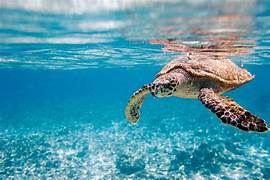Saving Our Marine Animals: A Call to Action
July 26, 2024 2024-07-26 9:50
Saving Our Marine Animals: A Call to Action
The ocean, covering over 70% of our planet, is home to an astonishing array of marine life. From the majestic whales that roam the deep to the vibrant coral reefs teeming with diverse species, the marine ecosystem is a treasure trove of biodiversity. However, this vital part of our planet is under severe threat. The decline of marine animals is a pressing issue that requires immediate and concerted efforts to reverse. Here, we explore the challenges faced by our marine animals and the steps we can take to protect them.
The Challenges Facing Marine Life
- Pollution: One of the most significant threats to marine life is pollution. Plastic waste, chemicals, and other pollutants are poisoning our oceans. Marine animals often mistake plastic for food, leading to ingestion and entanglement, which can be fatal.
- Overfishing: Unsustainable fishing practices are depleting fish populations at an alarming rate. Bycatch, where non-target species are caught accidentally, further exacerbates the problem, leading to the decline of many marine species.
- Climate Change: Rising temperatures and ocean acidification, driven by climate change, are having devastating effects on marine ecosystems. Coral reefs, which are crucial habitats for many marine species, are particularly vulnerable to these changes.
- Habitat Destruction: Coastal development, trawling, and other human activities are destroying critical habitats for marine life. Mangroves, seagrass beds, and coral reefs are being damaged or lost, reducing the available habitat for marine animals.
Steps to Protect Our Marine Animals
- Reducing Pollution: We must take immediate action to reduce pollution. This includes cutting down on single-use plastics, improving waste management systems, and supporting clean-up initiatives. Organizations and individuals can play a role in advocating for policies that reduce plastic production and promote recycling.
- Sustainable Fishing Practices: Implementing and enforcing sustainable fishing practices is crucial. This involves setting and adhering to catch limits, protecting critical habitats, and reducing bycatch through the use of selective fishing gear.
- Combating Climate Change: Addressing climate change is essential for the long-term health of our oceans. Reducing carbon emissions, transitioning to renewable energy sources, and protecting blue carbon ecosystems like mangroves and seagrasses can mitigate the impacts of climate change on marine life.
- Protecting Marine Habitats: Establishing marine protected areas (MPAs) is an effective way to conserve marine biodiversity. MPAs provide safe havens where marine animals can thrive without the pressures of human activities. Supporting conservation organizations and initiatives that work to protect and restore marine habitats is vital.
- Education and Advocacy: Raising awareness about the plight of marine animals is key to driving change. Education programs, public campaigns, and advocacy efforts can mobilize communities and policymakers to take action. By fostering a deeper understanding of the importance of marine conservation, we can inspire more people to become stewards of the ocean.
Success Stories
Efforts to save our marine animals have already shown promising results. For instance, the humpback whale population has made a significant recovery due to international protection efforts. Similarly, the establishment of marine protected areas has led to the resurgence of fish populations and the restoration of coral reefs in various parts of the world. These success stories demonstrate that with the right actions and commitment, we can make a difference.
Conclusion
The survival of our marine animals is intricately linked to the health of our oceans and the overall well-being of our planet. By addressing pollution, promoting sustainable fishing, combating climate change, protecting marine habitats, and raising awareness, we can ensure a future where marine life thrives. The time to act is now. Together, we can turn the tide and safeguard the magnificent marine animals that call our oceans home.
Related Posts
Saving Our Marine Animals: A Call to Action
July 26, 2024 2024-07-26 9:50Popular Tags






























